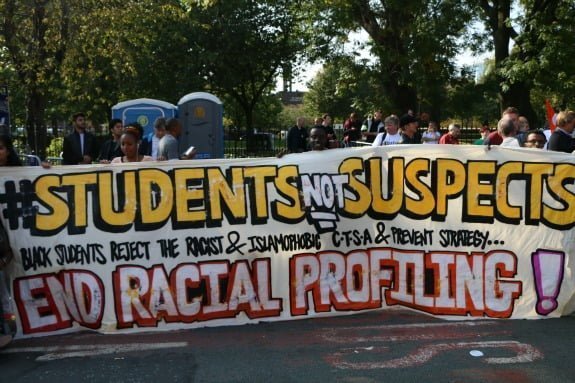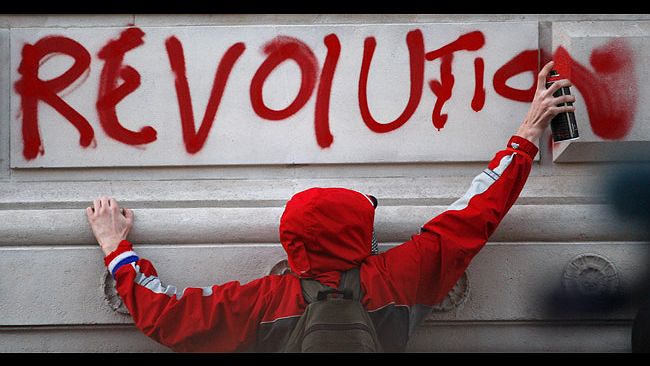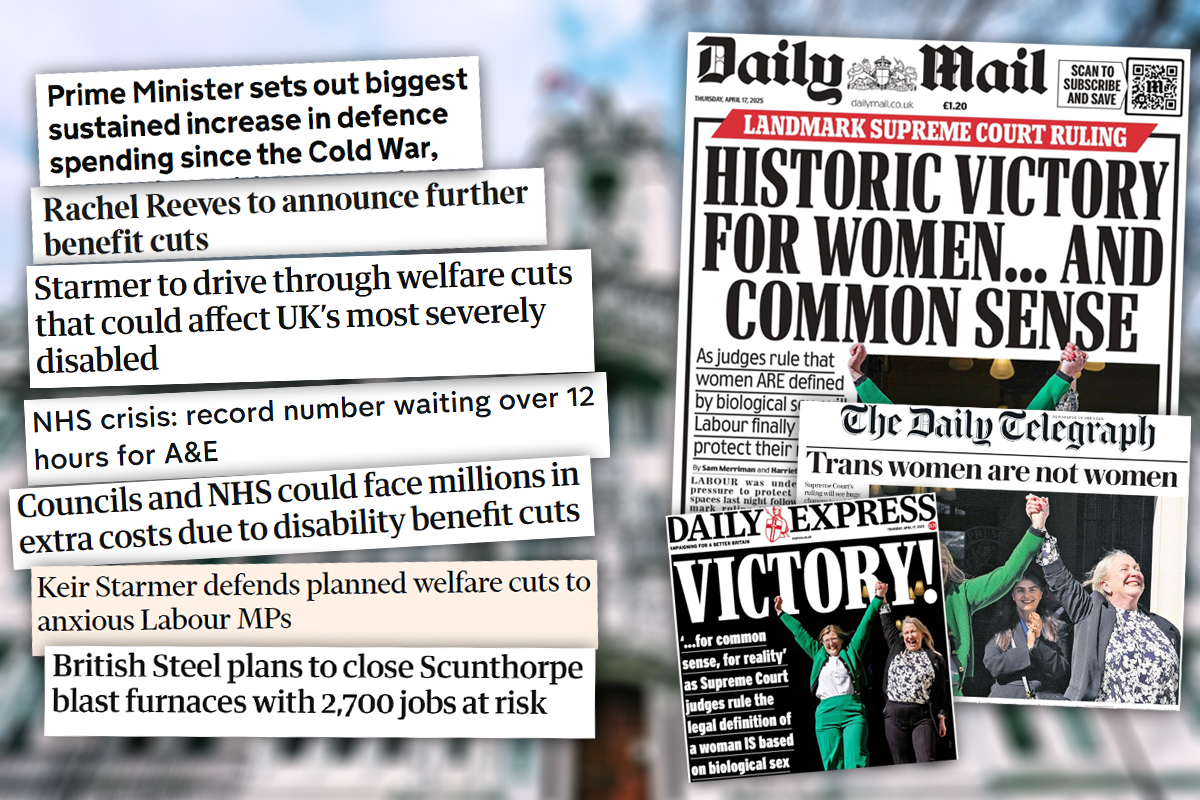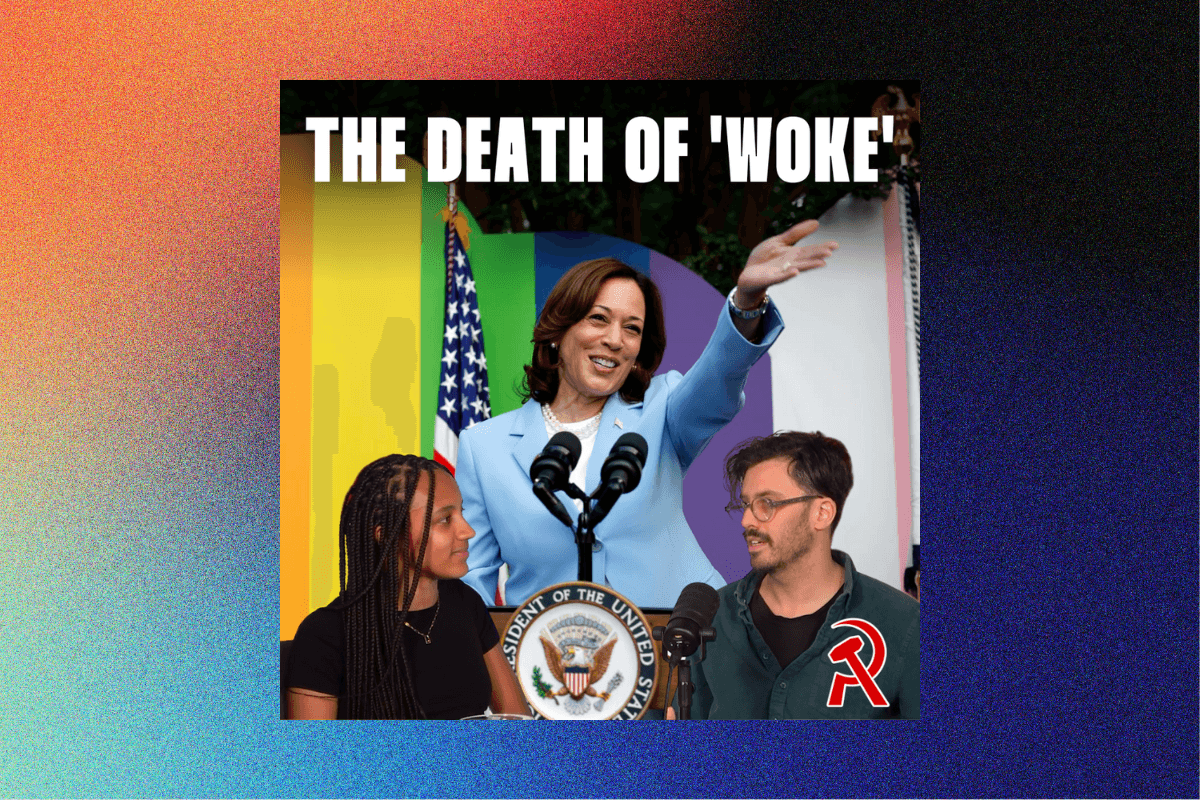The activities of political students attempting to create ‘safe spaces’ and campaign against hate groups have attracted plenty of negative attention in the mainstream press for their ‘restriction of freedoms of expression and speech’. The Marxist Student Federation provides a socialist perspective on the fight against oppression.
As reported in The Independent, the right-libertarian magazine spiked has recently produced a so-called Free Speech University Ranking, which demonstrates that 90% of university student unions are involved in the restriction of freedoms of expression and speech. The activities of many political students in attempting to create ‘safe spaces’, to campaign against hate groups, and to eliminate harmful practices from the university environment are routinely noted in the mainstream press, almost always with a mixture of incredulity, irony and outrage.
Among the actions noted by spiked and other news outlets are the campaigns against misogynist comedian Dapper Laughs, the calls to ban Germaine Greer for her hateful attitudes to transgender people, and opposition to the wearing of clothes deemed offensive in some contexts, such as Native American headdresses and sombreros.
“Freedom of speech”
Underlying most of this outrage is an utterly reactionary attitude to ‘freedom of speech’ and its actual content. According to liberal bourgeois opinion, freedom of speech is a universal value which should never be violated, least of all in opposition to what they claim are the ignorant attitudes of a minority. So, for organs such as spiked, the freedom of speech of men who want to make unwarranted sexual comments to women is as sacred as any other more innocuous ‘freedom’. Campaigners against hate speech, rape culture and racism are thereby rendered every bit as dangerous as the fascists, misogynists and racists they oppose.
As Marxists, we do not hold a liberal view regarding the freedom of speech. We understand that this “freedom” is meaningless, when the vast majority of people have no access to or control of the means of communication in society, which are currently owned and controlled by a small handful of media oligarchs under capitalism. In addition, we oppose those whose “freedom of speech” is in fact a cover for racism, sexism, and other reactionary ideas that only serve to divide ordinary people against each other.
For us, therefore, the freedom of men to catcall women – which is one everyday example of oppressive patriarchal behaviours which spiked often seem to deny exist – is no freedom at all. Such practices do nothing to unite workers and youth against the ruling class which is responsible for exploitation and oppression, and are therefore contrary to any serious conception of liberty. The liberty we defend in this circumstance is for the woman to respond in whatever way most effectively secures her safety from further, potentially more aggressive, advances.
Equally, the demonisation of benefit claimants and migrants by newspaper editors like Paul Dacre (Daily Mail) shows what is hypocritically meant by “freedom of the press” under capitalism: it signifies the absolute disparity in power and wealth which exists and which must be combatted by revolutionary means.
Fighting oppression through revolutionary means
What is wholly missing from this view is of the systematic oppression and inequalities in power that exist within – and as a result of – class society, and the real history of opposition to prejudice. The liberal attitude to policies such ‘no-platform for fascists’ (from which many of these campaigns develop) is that it is more effective to defeat fascist attitudes in a free debate in which the absurdity of the ideology is made clear.
At root, prejudice and oppression are a reflection of class society. Racism, sexism, and homophobia are promoted by the ruling class in order to divide the working class and distract from the class struggle. In their most extreme forms, reactionary movements were ultimately defeated neither by peaceful debate and discussion, nor by bureaucratic censorship. Only mass movements, based on the organised working class, and utilising all means at their disposal (from peaceful discussion, to violent self-defence) can overcome divisive ideologies, particularly when they are given an organised form, such as fascism, or are structural, such as in apartheid South Africa.
This has been seen historically time and again. In Britain, it was the Battle of Cable Street, involving the labour movement and the local community, which smashed the nascent fascist movement in the 1930s. In Spain, opposition to fascism was at its most effective as an armed revolutionary movement, organised through the unions. In the African-American struggle, even the civil rights leaders who prided themselves on peace and respectability understood the need for violent self-defence in certain contexts.
This is the real history of organised opposition to the most extreme forms of oppression and prejudice. It has nothing in common with liberal and sentimental arguments about freedom of speech. Ideologies promoted by the ruling class to divide the working class will not be defeated simply through debate and discussion, but by mass class-based movements.
Tactics to defeat prejudice and oppression
 Of course, in the first instance preachers of prejudice ought to be opposed and convinced in argument. But this is something acknowledged by most activists; for instance by those in Cardiff, who initially were campaigning only to change the format of Greer’s event into a debate. When they failed to secure that alternative, they campaigned for it to be called off.
Of course, in the first instance preachers of prejudice ought to be opposed and convinced in argument. But this is something acknowledged by most activists; for instance by those in Cardiff, who initially were campaigning only to change the format of Greer’s event into a debate. When they failed to secure that alternative, they campaigned for it to be called off.
Nevertheless, it would be fatal to limit ourselves to such tactics and campaigns. Banning individual speakers is only one tactic in the fight against prejudice and oppression; by itself, this does not help to raise the level of political awareness on campus surrounding these issues and organise a genuine movement against oppression. Such decisions are often taken by union officers or a small group of activists, without any genuine involvement, consultation or debate with the wider student body and, as a result, are understandably seen as being elitist and ‘cliquey’. Students should not be kept in a protected bubble, isolated from the divisive ideas that exist in wider society, but organised into a movement to discuss and fight such ideas and the system that breeds them.
Similarly, we must not let campaigns to ban individual speakers become the sole focus of the student movement and distract from the equally important task of fighting against the austerity, cuts, and inequalities in education and across wider society that prevent the most oppressed layers from accessing higher education in the first place. Where campaigns are launched on campus to ban speakers who promote bigoted and reactionary ideas, these should be linked to the demand for students, staff, and the wider student and labour movement to have genuine control over the education system, in order to guarantee that syllabuses, lecturers, and other guest speakers reflect the needs of society, not of big business.
To fight genuine cases of oppression and prejudice on campus, student unions should organise mass campaigns involving all students, in which the issues of racism and sexism, for example, are discussed and linked to the question of capitalism and class society. In turn, it is necessary to link student movements on campus with a broad, class-based movement for revolutionary change – which is the only way by which the various oppressions which we experience can be ended.
At the same time, we must have a sense of proportion and understand the difference between a creed such as fascism and individuals who happen to have crude, prejudiced ideas. Fascism historically, came about as a mass movement of the frenzied middle class and lumpen elements in society, used by the ruling class to crush the organised working class. In recent times, mass campaigns have correctly been organised to deny speakers such as Nick Griffin, the former leader of the far-right BNP (the British National Party), a platform within universities. The organised and militant methods required to keep fascists off our streets or campuses today, however, are clearly over the top when it comes to challenging speakers – such as, for example, Germaine Greer – who are nothing more than individuals holding prejudiced ideas.
A revolutionary perspective
 The campaigns of feminist and anti-racist organisations in many respects do not go far enough. Often they are organised by well-intentioned people, but whose politics nevertheless bear the marks of the petit-bourgeois environment of academia. What is often lacking is a thoroughgoing revolutionary perspective which identifies the possibility and works toward the abolition of all oppressive social forms.
The campaigns of feminist and anti-racist organisations in many respects do not go far enough. Often they are organised by well-intentioned people, but whose politics nevertheless bear the marks of the petit-bourgeois environment of academia. What is often lacking is a thoroughgoing revolutionary perspective which identifies the possibility and works toward the abolition of all oppressive social forms.
One example of the inadequacies of this form of activism is the idea of the safe space, which fails to understand the real dynamics of oppression. In many ways, a comparison can be drawn between the creation of ‘safe spaces’ by university student unions and the philosophy of ‘ethical consumption’, which many leftist students ‘buy into’ (pardon the pun). Both are fundamentally utopian attitudes which proceed from a set of mistaken understandings.
No space can be isolated from the oppressive realities of capitalism for any length of time, if at all. What’s more, to create such a space suggests the possibility of retreat from society. The ravenous, insatiable character of capital, though, precludes the possibility of any retreat or safety. No area of the world, whether it be a continent, a country, a region or even a remote institution can remain sacred as long as capitalists seek to realise their profits. It is a paradox of bourgeois ideology that as surely as it idolises ‘virgin lands’ it makes their existence impossible by its violent expansion. This is because with capitalist profit-seeking comes the social structures and prejudices which allow for that profit to be made. Under capitalism, all areas of life are subject to the demands of accumulation and profit. No space, and no person, can be completely free of these multifaceted demands.
Related to this is the fact that no commodity is produced ‘ethically’. Commodity production under capitalism is a necessarily exploitative activity. Under capitalism, all production relies on the blood, sweat and tears of uncountable toilers. The very form which labour takes, and the conditions on which it relies, are inhuman. There is therefore no possibility for a consumption which is cleansed of the evils of the bourgeois mode of production.
Marx, though, offered a positive resolution of this appalling situation. According to him, the advent of generalised commodity production – and the vast abundance which has been forced by the power of capital from the labour of billions of people over centuries – has established the possibility of a new society. In this new socialist society abundance can be created without exploitative wage-labour and can be enjoyed by all, without the appropriation of vast fortunes by a very few people. This society would enable a qualitatively higher and more thorough war against every prejudice – racial, gendered, or centred on sexual orientation. It provides the real and tangible possibility of a complete revolution in social conditions.
It is toward this revolution that student unions must build, not by restricting the circulation of certain ideas or commodities, but by agitating in the student body against all oppression; educating all students about the oppressions of capitalist society; organising to fight them with a militant programme and bold tactics; and linking them with struggles outside of the university space – most importantly, with the trade unions and the Corbyn movement.
In this fight, capitalism has also equipped us with a set of political ideas which we can appropriate to ourselves and our struggles: liberty, equality, fraternal co-existence. For us, these are slogans not of two-faced sentimentality, but of struggle against every oppression. Quoting Lenin, we say: ‘Down with the liars who are talking of freedom and equality for all, while there is an oppressed sex, while there are oppressor classes […] Not freedom for all, not equality for all, but a fight against the oppressors and exploiters, the abolition of every possibility of oppression and exploitation – that is our slogan!’






